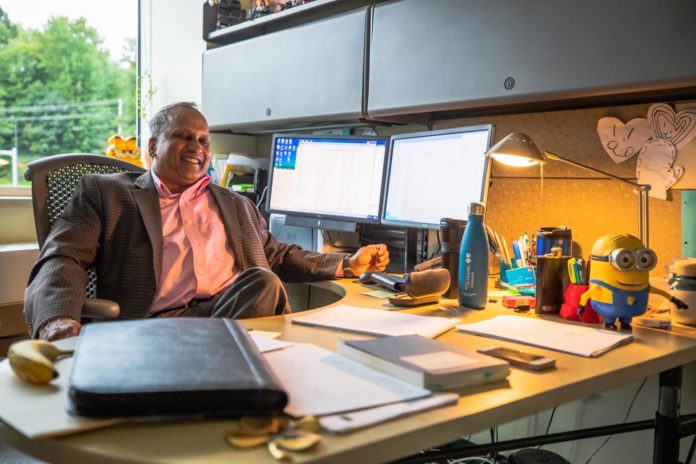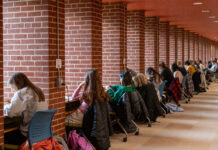Like Whitney Houston said, “Children are our future, teach them well and let them lead the way,” and that’s exactly what Sam Thangiah, professor of computer science, intends to do.
“I think we are lacking STEAM in this area, so institutions like Carnegie Mellon University and the University of Pittsburgh offer STEAM classes, but they charge somewhere around $1,500 or more for a week,” Thangiah said. “But if you look at the salaries of the families in this area, they can’t afford it, and they’re kind of being left out with respect to the sciences and technology and so on.”
Then, Thangiah realized that the location of Slippery Rock University is a perfect spot to start offering STEAM classes to kids in the area. He recruited other professors and students in the computer science department, as well as other departments, to hold special camps featuring classes in robotics, physics and chemistry, among other fields.
“I couldn’t do it alone, so I asked my department, and they were fully on board,” Thangiah said. “And we do it on a volunteer basis, the entire department.”
There is a charge due to the snacks and drinks offered, as well as the equipment needed to keep the camp relevant and exciting, but if the family wants to send their child and can’t afford it, Thangiah said the registration fee isn’t mandatory and the student can still attend. The computer science professor also received a grant from the Office for Community Engaged Learning to aid in obtaining the necessary resources.
In addition to the number of faculty members helping Thangiah teach these classes, students are also involved in giving back to the kids. Students in the science department volunteer their time, but so do non-majors like math and art majors. Thangiah said this is really good for the college students involved just as much as the younger kids because the experience is teaching them what their degree really means and helping them learn soft skills. Not everyone can get an internship, so they can use this experience preparing, presenting and public speaking, Thangiah said. Zachariah Miller, a graduate student from Beaver, even conducted an entire class.
“The students really start to realize the power of education, which most don’t really understand until you get a four-year degree and go to get a job,” Thangiah said. “You’re not thinking exactly what kind of a difference you can make in a community, but here you get to make a lifetime of difference for the kids.”
It’s not just the STEAM part, though. Thangiah’s favorite part about this program is getting the kids excited about the education process. The team helped the kids experience the different areas in the sciences, technology, engineering, art and mathematics, and Thangiah said it was exciting to watch them get into these kinds of things because they might not have the resources at school, but at least they’re getting exposed to it.
Thangiah hopes to continue expanding the program, encouraging more and more kids in the area to participate, until the schools can pick up where this series of classes will leave off. After that, and possibly before, he plans on sending students into the schools to start training the teachers.
“When you bring students over here, you’re not gonna get everyone, but if you go to the schools, you have a much bigger audience that can be impacted by this,” Thangiah said.
The first classes lasted an hour long and were held in the spring over the course of four Saturdays. The team then held a day camp here at the university for three days, from 9 a.m. to 4 p.m. each day, with snack breaks, of course. The art department presented pottery and Photoshop lessons, the computer science department taught robotics and the chemistry department put on experiments like blowing trashcans three stories into the air. Thangiah described that class with a smile, mentioning that the professors had to warn the police ahead of time.
“Everyone wants to be a chemist after that,” Thangiah laughed.
The next set of courses will be held in November, with the same structure as the spring classes, and will accept local students from grades two through 12.








